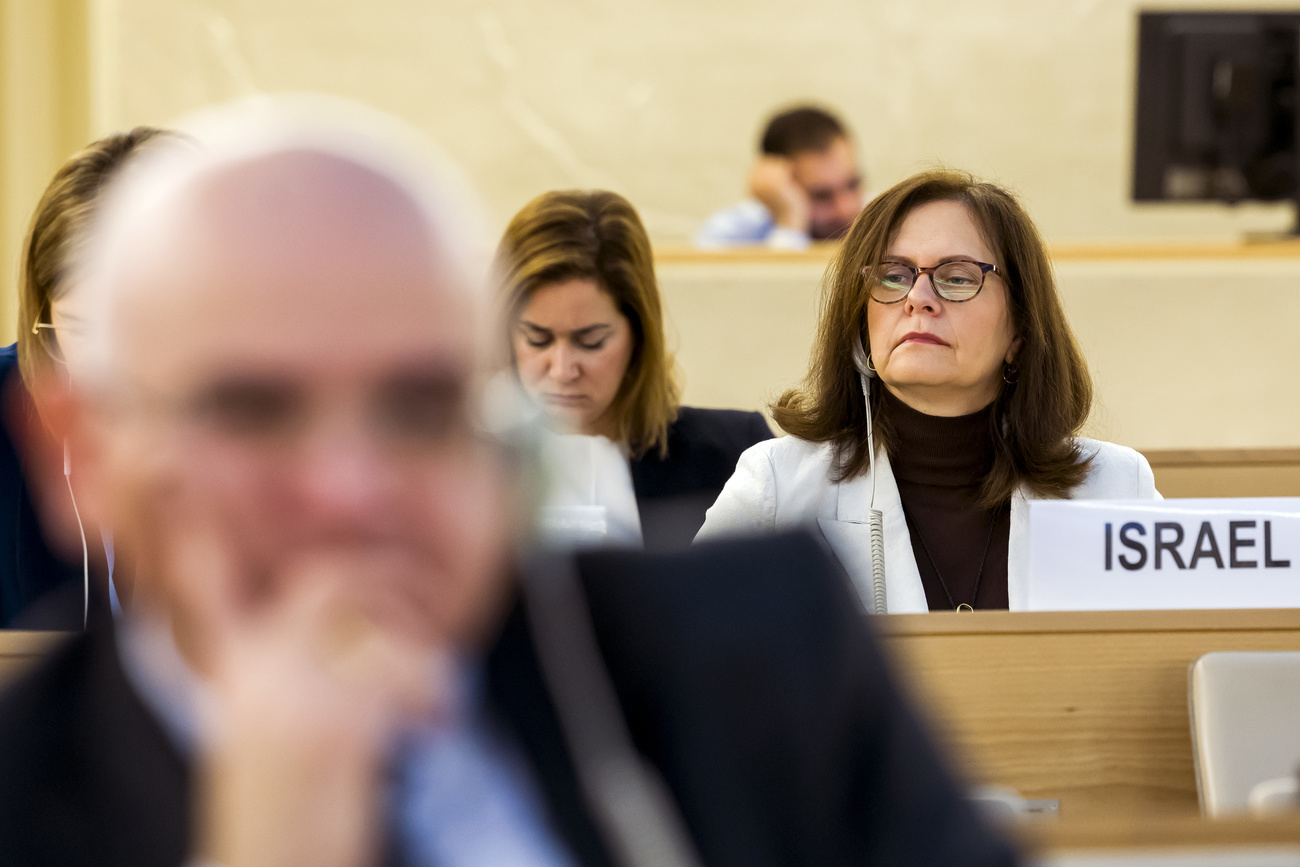UN Human Rights Council faces a shifting world order

The UN’s top human rights body begins its session in Geneva on Monday. Its first meeting of the year will be marked by the absence of the United States, a tight budgetary context and a rebalancing of power.
In a tense geopolitical context, the United Nations Human Rights Council convenes in Geneva on Monday for its first session of the year. Over the next six weeks, until April 4, the 47 member states of this UN body – tasked with defending human rights worldwide – will address a long list of countries and topics requiring their attention.
The conflicts in Ukraine and the Middle East, as well as the future of Syria after more than 13 years of civil war, will dominate discussions and serve – among other crises – as a backdrop for the Council’s decisions.
But there will be a major absentee. In early February, Donald Trump announced that the United States would completely withdraw from the Human Rights Council. This decision was followed by Israel’s boycott of the same body. Washington, which had already abandoned its membership during Trump’s first term, accuses the Council of having an “anti-Israel bias” and of including states guilty of severe human rights violations among its members.
A blow to multilateralism
“It is deeply regrettable that the world’s leading power, which helped shape the international order based on human rights, is leaving this body,” says Vincent Chetail, professor of international law at the Geneva Graduate Institute.
“But this will not fundamentally change things,” he adds. While it represents another setback for multilateralism, the United States had only been an “observer” at the Council since the beginning of the year, without voting rights. The main difference now is that it will no longer participate in debates, which will continue within the Council.

For the first time in its history, Switzerland, represented by Ambassador Jürg Lauber, will chair the Council’s meetings. The president plays a largely honorary and coordinating role, which includes appointing experts within the investigative bodies mandated by the Council.
Asked during a press conference about the impact of the US withdrawal, Lauber said that the Council remains “the most important body for intergovernmental exchanges on human rights issues.” According to him, this view is widely shared within the international community.
Lauber also encouraged “all states to engage” with the Council, while acknowledging that Washington is “an important voice” on these matters.
Funding concerns
The United States funds one-third of the United Nations. Last month’s announcement of a freeze on American development aid sent shockwaves through UN agencies and NGOs that depend on US contributions.
While the Human Rights Council’s budget – which is integrated into the UN’s regular budget – is not immediately threatened by Donald Trump’s financial cuts, it could be in the long run. This is particularly concerning given that the organization is already facing a liquidity crisis due to unpaid contributions from member states.
“More than the US withdrawal from the Council, it is the cuts in American funding that will have a significant impact. This could shift the balance in favor of wealthy countries like China, which can fill the void,” says Chetail of the Geneva Graduate Institute.
Last year, budget constraints had already forced cost-saving measures, such as reducing the number of broadcasts of Council sessions. Cuts were also made to the budgets of investigative missions approved by the Council.
“The UN’s liquidity situation imposes certain limits on the Council’s work,” acknowledged Ambassador Lauber. While he said he could not yet determine the extent of budget cuts for 2025, he indicated that he would seek to “enhance the Council’s efficiency” and optimize resources.
The participation of NGOs – essential to the Council’s work due to their field expertise – could also be hindered by the US cuts, as travel costs to Geneva remain high.
China’s return
During the last US withdrawal from the Council between 2018 and 2021, China seized the opportunity created by Washington’s absence to advance its vision of human rights. This included proposing its own resolutions and speaking before the Council.
Beijing had then challenged the universal nature of human rights, emphasizing national sovereignty and the right of states to set their own priorities in this domain. China argued that it prioritized collective rights – particularly economic rights – over individual political rights. This approach was criticized by European democracies.
China may once again seek to expand its influence within the Council. Asked about this possibility, a European diplomat noted that in response to the US withdrawal, “China will want to show that it is a responsible actor and a stabilizing force in the multilateral world. It is therefore likely that Beijing will put forward proposals designed to gain broad support in the coming weeks.”
“The US disengagement certainly opens up space for other states to pursue their agendas and increase their influence,” says Phil Lynch, director of the International Service for Human Rights, a Geneva-based NGO. He adds that this could be “positive or negative”.
Lynch points out that Washington’s previous withdrawal created space for some American countries to take the lead in addressing human rights violations in Venezuela.
In 2019, a group of South American nations – including Argentina, Brazil, and Peru – supported a resolution calling for an investigative mission into abuses such as summary executions and enforced disappearances in Venezuela.
Professor Chetail also considers it likely that other states—such as China or European countries—will seek to expand their influence, but he says that a clear picture of the new balance of power will only emerge at the end of the session.
Edited by Virginie Mangin/ts

In compliance with the JTI standards
More: SWI swissinfo.ch certified by the Journalism Trust Initiative









You can find an overview of ongoing debates with our journalists here . Please join us!
If you want to start a conversation about a topic raised in this article or want to report factual errors, email us at english@swissinfo.ch.